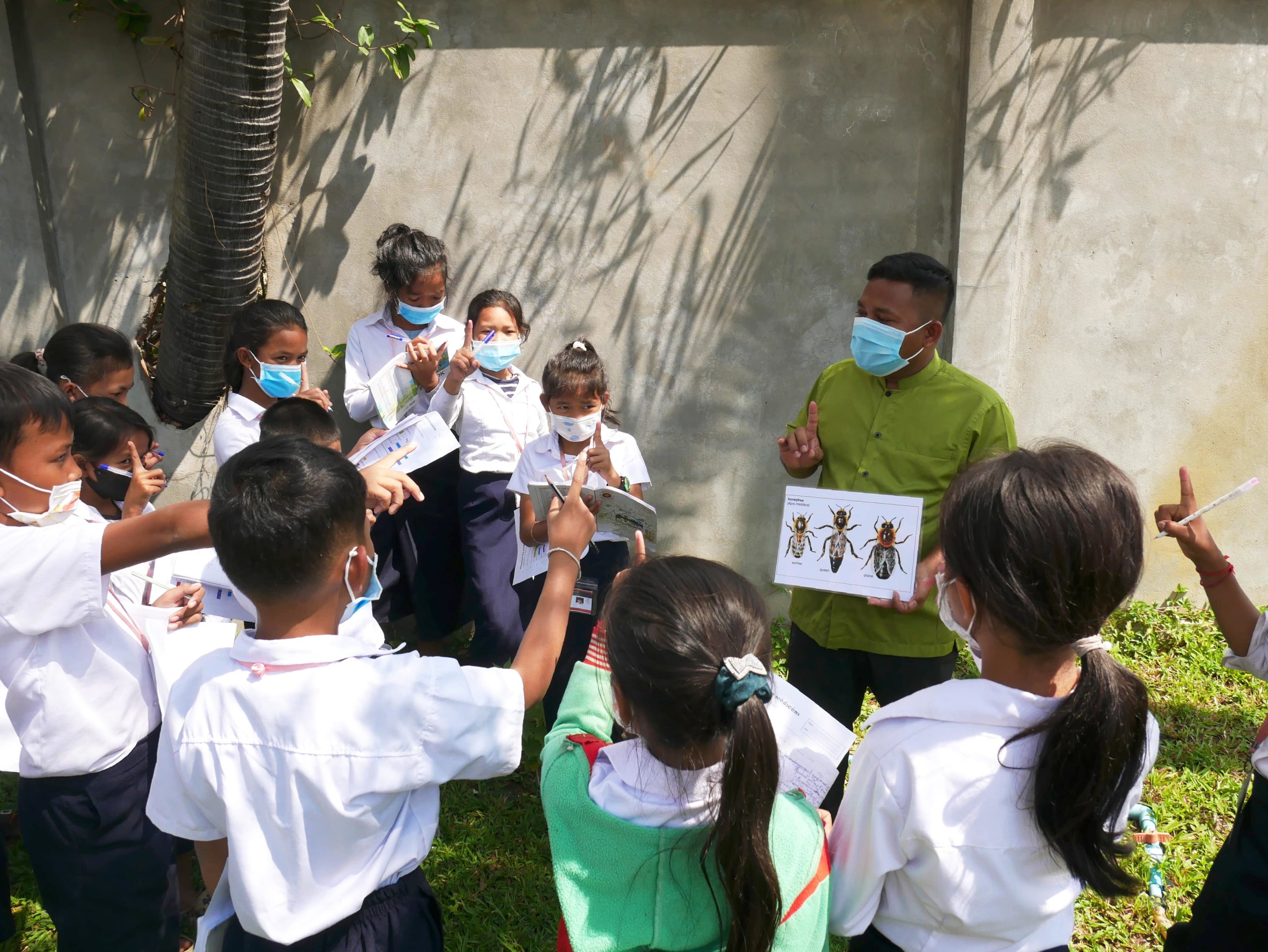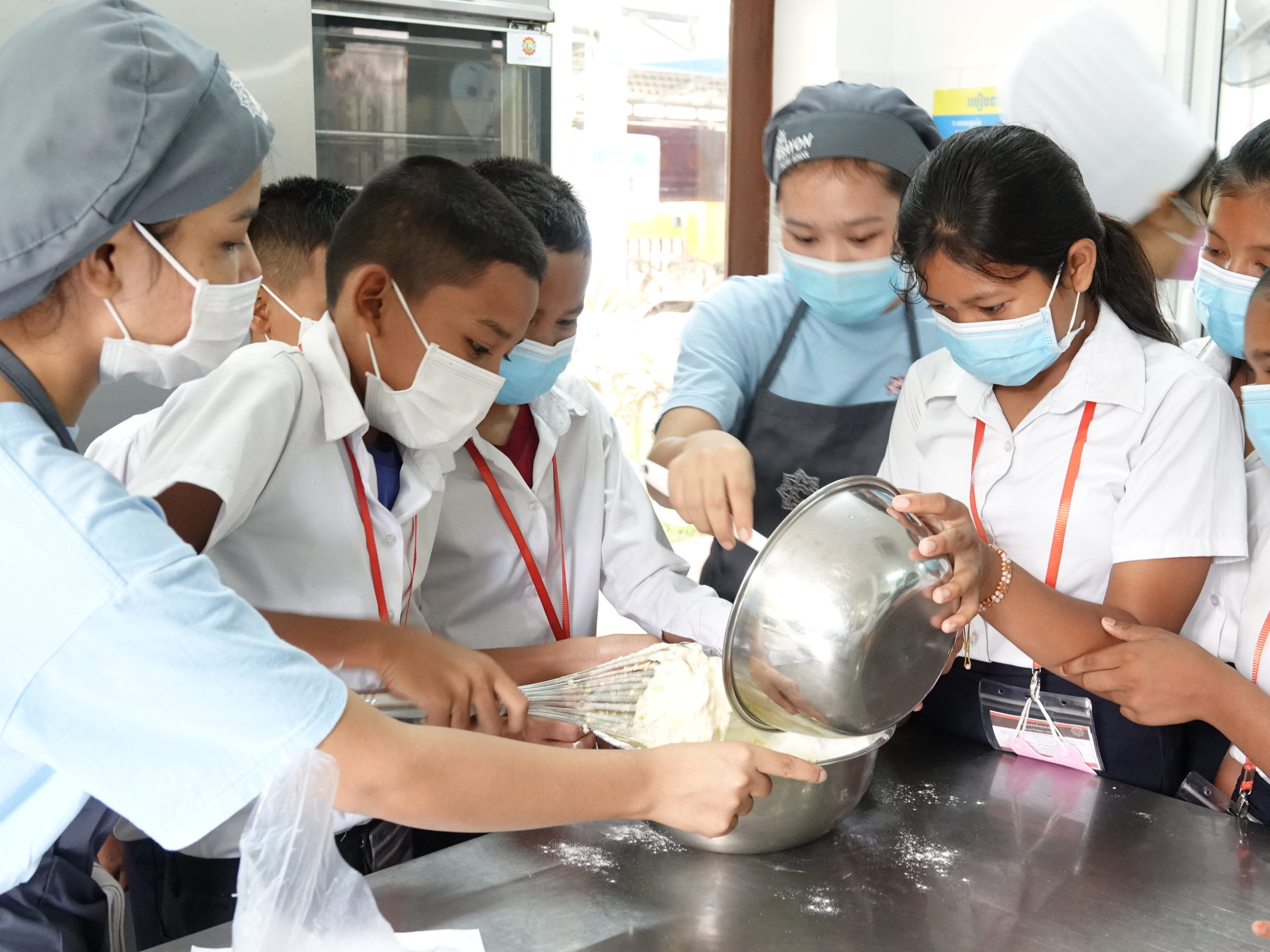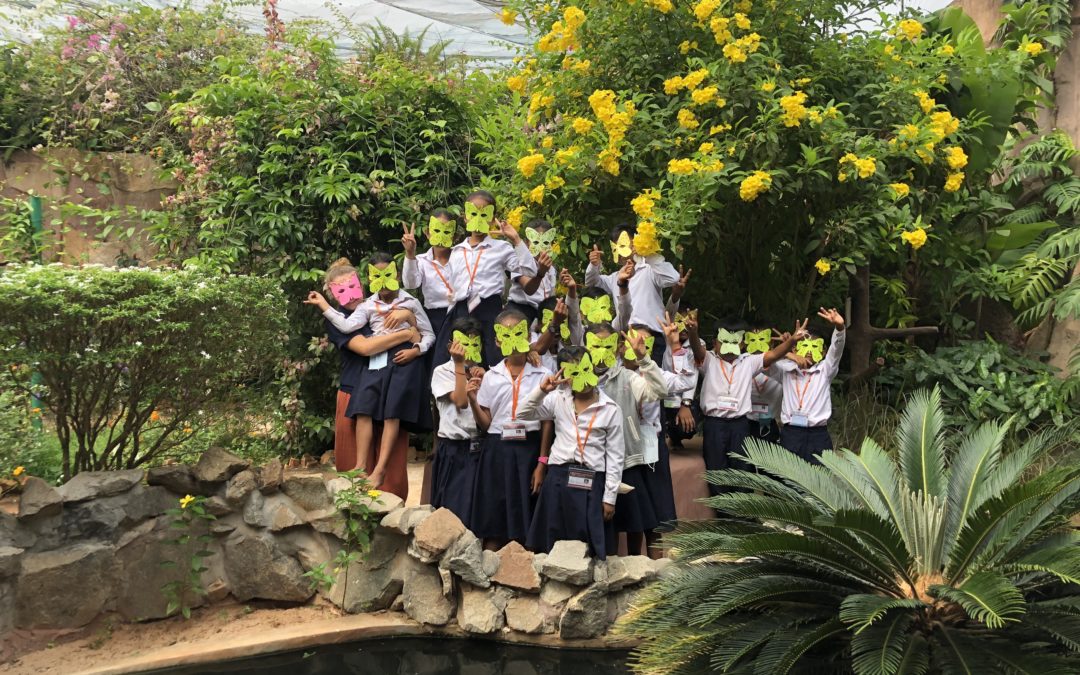What kind of activities are implemented in the Bayon School? What is the educational value/dimension of these activities?
The activities set up in our primary school are mainly cultural or sports activities. They allow the children to discover places, practices and activities that they have never done and will not necessarily have the chance to do later. Our students live mainly in and around the temples, and do not often have the opportunity to leave this area and visit Siem Reap town in depth. Through these activities we try to make their theoretical learning more concrete and fun by visiting museums about the history of Cambodia or the history of the temples. But also by visiting silk, butterfly or lotus farms, NGOs specialized in the training of rats or demining dogs, or even acrobatic and Khmer dance shows.
Each activity is designed to provide the children with new knowledge and general culture, but also to entertain them and take them out of the school environment.
From now, children had the opportunity to visit:
- Apopo, a demining rats center
- Senteur d’Angkor, a Cambodian handicraft workshop
- Bayon pastry school, a class with our pastry students
- Silk Farm Project
- Khmer ceramic, a pottery class
- Angkor zip line
- Lotus farm
- Mini khmer historical museum
- Butterfly farm
- Phare circus

How often do these activities take place?
Since the beginning of the activities in February 2022, they take place twice a month on average. We separate the classes into two groups (about 15 pupils) and alternate from one activity to another so that at the end of the year, the pupils have participated in at least two activities.
How do the children react to this type of activity?
The children are always very happy to leave the school grounds and get on a tuk tuk to discover the activity that awaits them. On the way, the children talk and look carefully at the new things along the road. In the last 2 years with Covid crisis, the activities have stopped. Most of them have not yet had the chance to leave school for an extra-curricular activity, so that make them more excited.
“Children discover and experience things that they never have or will have the opportunity to do in their everyday lives. They learn about the history of the places they visit, how and why that place was created. Outdoor activities allow students to discover what life is like outside of their villages, to experience things through their own eyes, touch, taste and smell. In addition, these places allow them to develop their imagination and to realize all the possibilities that are open to them. “Sokhea, activity manager.
Do you work with local partners to organize these?
We work exclusively with NGOs based in Siem Reap. We contact them to ask them to welcome us for free, by giving us a tour of their site, or a manual activity related to their program. Over the years we have established links with these NGOs, some of which welcome us every year.
However, since the Covid crisis, several NGOs have closed or can no longer welcome us for free, and it is becoming more and more complicated to find outings. Tourists are for the most part their source of income; without them, the NGOs find it difficult to continue their activities, and therefore to welcome free of charge organizations for access to education such as ours.

Written by Elisabeth Demaegdt, volunteer at the primary school.

